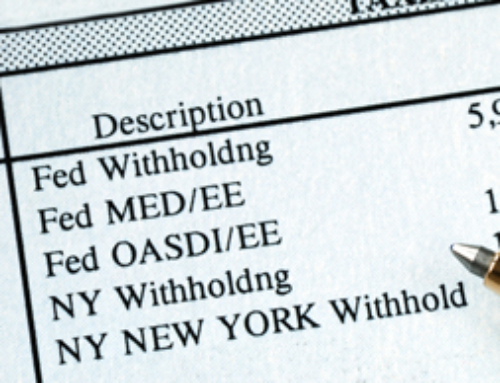 I recently met a 24-year-old who started a new business. Jeff was a pleasant surprise. He had a business plan. Jeff knew exactly what kind of customer base he wanted to have – and how to reach those customers. Of course, he was open to some additional ideas…but he was on exactly the right track. Jeff had done his due diligence.
I recently met a 24-year-old who started a new business. Jeff was a pleasant surprise. He had a business plan. Jeff knew exactly what kind of customer base he wanted to have – and how to reach those customers. Of course, he was open to some additional ideas…but he was on exactly the right track. Jeff had done his due diligence.
Most new start-ups overlook the market research. They get a ‘great idea’ and go out and try to implement it. They don’t take the time to find out about their competitors, or about any unfilled niches in their marketplace – or even what their target market should be.
Oh, this is supposed to be about tax tips? What are we doing talking about marketing? That’s the big tax tip. A business plan and marketing plan must be the foundation of your business’ tax plan.
Without a plan, you cannot prove to IRS that this anything more than a hobby. In fact, without a plan, it’s apt to take you extra months, even extra years to generate your first profits.
Let’s look at two cases where business plans made all the difference. These are both people whose businesses had been audited – and lost. Both men had full-time, high-paying positions in addition to these ‘hobbies’. (Note: Names are fictitious)
1 – Manny the Musician. Audited for two years. IRS disallowed his music business. Assessment – approx $12,000 per year in taxes, penalties and interest.
After interviewing Manny in-depth, it turned out that Manny was a Man with a Plan. He had complete documentation about this musical experience, expertise, publicity campaign – even the key to the city of Detroit. He was definitely a serious musician. He just didn’t know how to express this to IRS. Because he had already done all the groundwork, it wasn’t hard to get IRS to re-open his case. It just boiled down to interpreting the data Manny already had, in his own records. IRS did reconsider the audit for both years. Not only did Manny not owe IRS $24,000, he got back over $3,000 for each of those years.
2 – Herbie the Horse-breeder. IRS decided his horse ranch was a dud ranch. He owed over $20,000 plus penalties and interest. Herbie lost his Appeal, and filed in Tax Court. Then we looked at why IRS kept insisting his horse ranch wasn’t a business. He bought horses to breed, but did not have any horses to sell. Due to certain natural disasters, his primary foal died, and so did one of his breeders. However, it was easy to prove that he had professional, experienced staff running the ranch. He worked with the best vets. His horses were registered with the appropriate registries to prove bloodlines. And his original plan was to get this ranch set up, so when he retired, he could live on it and run it full time. Once we organized the proof Herbie already had in his files, the Tax Court accepted his position and he owed IRS nothing at all.
Now do you understand why your business plan is a major tax consideration? It can make all the difference!
READ MORE:
Wedding-related Tax Benefits
Plan Ahead for Next Year’s Taxes with Green Tax Credits – Part 1
Plan Ahead for Next Year’s Taxes with Green Tax Credits – Part 2
Eva Rosenberg, EA, is the publisher of TaxMama.com®, where your tax questions are answered. She teaches tax professionals how to represent you when you have tax problems. She is the author of several books and e-books, including Small Business Taxes Made Easy. Follow her on Twitter: @TaxMama






